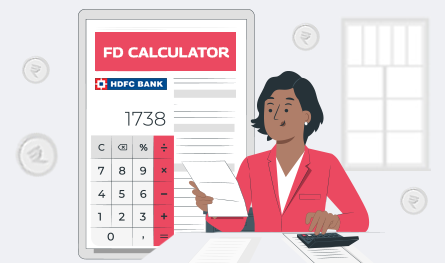Related Articles
 Jan 08, 2025
Jan 08, 2025
Is Varicose Vein surgery covered under the health insurance policy in India
 Health Insurance
Health Insurance
.png)
Health Insurance policies provide coverage for numerous medical expenditures; however, one should be aware of the exclusions while purchasing the policy. Let’s understand insurance exclusions in this post.
.png)
The key role of health insurance policies is to offer monetary assistance to individuals and families during the time of medical emergencies. A comprehensive health plan safeguards individuals from different expenses related to hospitalization and treatment. This allows the insured to concentrate on recovering and getting healthy rather than worrying about medical bills.
In general, health insurance companies provide coverage for most health conditions. But depending on the company policy, every insurer prepares a set of exclusions with their specific health plans. The exclusions include medical conditions for which the insurer either doesn’t offer coverage or allows coverage after a particular waiting period. Every policyholder needs to know about these exclusions. Being ignorant about them might cause distress at the time of raising health claims. To know these exclusions, one must read the policy document thoroughly.
Health insurance policy exclusions vary depending on insurance companies and particular insurance plans.
Every health insurance company has a set of waiting periods applied for different purposes under the plan. A policyholder has to go through the waiting period before enjoying the benefits of their health plan. You can’t raise a claim under your health insurance until you complete the waiting period as per the policy document. Some of the various waiting periods include:
What are the important exclusions under Mediclaim policy
PEDs are the conditions that the insured already suffers from when purchasing the health policy. Almost all health insurance companies apply a PED waiting period for certain diseases. The duration of such a waiting period might range from 2-4 years.
In most cases, regular health insurance plans do not cover maternity expenses. If you are recently married and wish to start a family soon, you should confirm with your insurer if the plan chosen by you covers maternity costs like pre-and post-natal care, childbirth, newborn baby care, etc. Moreover, even if your policy covers maternity expenses, they might apply a waiting period of 2 or more years before you can avail the benefits. So, it is important to check it before buying the plan.
Until recently, most health insurance policies in India did not cover mental illness. However, the recent guideline of the Insurance Regulatory and Development Authority of India (IRDAI) has made it compulsory for all insurers in India to cover the treatment costs associated with mental health conditions.
At the time of discharge from the hospital, what headings are not payable as part of in-patient claims?
STDs or sexually transmitted diseases such as HIV/AIDS are also not covered under most of the health insurance policies.
Plastic surgery, body contouring or sculpting, or even breast enhancement are some cosmetic treatments that are generally not covered under most regular health insurance policies.
Most health policies do not cover dental procedures unless the requirement of dental treatment comes from any accidental injury.
Injuries that are deliberately inflicted by the insured or any condition caused due to a case of attempted suicide are conditions in the self-inflicted injuries category that are not covered under your health insurance policy.
Among the several permanent exclusions, congenital diseases or certain bodily conditions caused to the insured due to war or nuclear weapons are exclusions that are not covered under a health insurance policy.
As already discussed, almost all health insurance policies are available with certain exclusions known as common exclusions, which we read about in the section above. Apart from the common exclusions, every policy also has some permanent exclusions, typically bound by time and conditions. Hence, they can be termed conditional exclusions. It is equally essential for the policyholder to know about such permanent conditions. And to know and understand these permanent exclusions, you must read the policy document thoroughly.
For example, genetic blood disorders or certain chronic illnesses may never be covered under your health insurance policy for your entire life.
Exclusion in health insurance means some medical conditions which are not covered under your health plan. Policies generally have common and permanent exclusions.
Some of the general exclusions under health insurance policies are:
~ PED or Pre-Existing Diseases
~ Cosmetic Procedures
~ HIV/AIDS
~ Treatment for Obesity
~ Treatment for Substance Abuse
~ Treatment against hazardous sports injury
~ Mental conditions
~ Maternity expenses etc.
Sub-limit in health insurance is a particular sum fixed as part of your health insurance policy, spent to cover a specific health condition. On the other hand, exclusions are the healthcare conditions or situations which are not covered under your policy or may be covered after completion of the waiting period.
No, most health insurance companies do not provide any riders with permanent exclusions
You cannot get coverage for permanent exclusion as most insurance companies do not offer them.
Permanent exclusions are included under health insurance policies to prevent fraud.


Paybima Team
Paybima is an Indian insurance aggregator on a mission to make insurance simple for people. Paybima is the Digital arm of the already established and trusted Mahindra Insurance Brokers Ltd., a reputed name in the insurance broking industry with 17 years of experience. Paybima promises you the easy-to-access online platform to buy insurance policies, and also extend their unrelented assistance with all your policy related queries and services.
So, you’ve crossed the fabulous 60 mark. Retirement may be on the cards, your kids might be off doing their own thing, and suddenly your knees are making more noise than your WhatsApp notifications. Welcome to the senior citizen club.
Now let’s talk about something most of us tend to postpone until a doctor gives us a reality check: health insurance. If you are wondering whether buying health insurance after 60 makes sense, the answer is a loud and clear yes. This article will cover everything you need to know about it, how it makes sense, how it differs from health insurance for young adults, and what you need to look out for when checking for medical insurance above the age of 60.

.png)
April 2 is observed as World Autism Awareness Day and there is no better way to observe the day than to raise awareness of this condition and to promote kindness towards autistic people. Read on to know more.


Car depreciation implies the difference between the cost of a car at the time of buying the car and when you sell it. A car insurance claim amount is determined by the car depreciation rate. The car depreciation rate is the reduction in the value of your car over its lifespan caused by wear and tear.


Fixed Deposits (FDs) are one of the safest ways to grow your savings. HDFC Bank offers attractive FD interest rates, allowing you to earn guaranteed returns on your investment. But before you invest, it's important to know how much interest you will earn and what your final maturity amount will be.


If you think of life insurance, chances are you are picturing something people buy in their 30s or 40s. But what if you are 65 or older and just getting started? The good news is that you are never too late. Whether you are thinking of easing the financial burden on your family, covering final expenses, or simply leaving behind a legacy, there are life insurance options tailored just for you.
This article will be a guide to life insurance for senior citizens above 65 years, explaining why it is important, the type of insurance options, and how to get the right policy for you.
